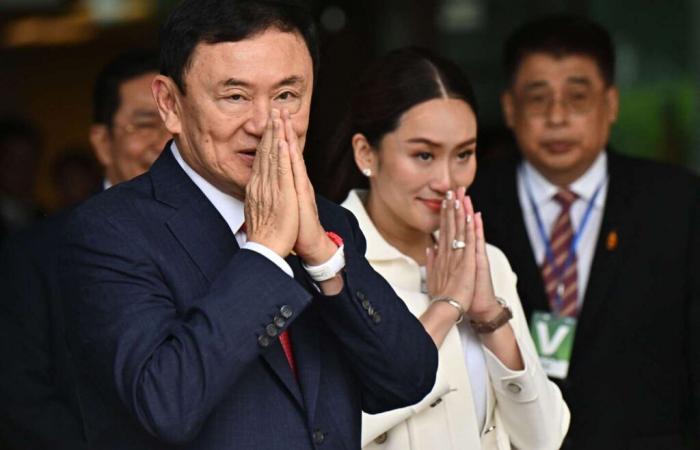DHaving become Thailand’s prime minister at the age of 38 on August 16, Paetongtarn Shinawatra embodies a family’s revenge: her father, Thaksin, elected in 2001, was overthrown in a coup in 2006, and her aunt Yingluck, who came to power in 2011, was deposed in 2014. She also joins a cohort of “sons and daughters of” in Southeast Asia.
In Cambodia, Hun Manet succeeded his father, Hun Sen, a year ago in uncontested elections. In the Philippine democracy, “Bongbong” Marcos, son of the dictator who was ousted in 1986, was elected in May 2022 after more than three decades of a slow reconquest of power through local and then national elections. In Indonesia, Prabowo Subianto won the presidency without a contest in February: son-in-law of the former dictator Suharto, his vice-president is… the son of the outgoing president, Joko Widodo.
Read also: Article reserved for our subscribers Imelda Marcos, wife of a dictator, mother of a president
Add to your selections
THE « nepo babies » are “in full resurgence in Southeast Asia in both democratic and non-democratic systems”noted the Financial Times August 24. While it can be confused with pure authoritarianism, as in Cambodia, dynastic politics often claims to embody a third way: wanting to be reassuring, between democracy and authoritarianism, it is then inspired by “Asian values”, a concept promoted in the 1990s by two Southeast Asian leaders, Lee Kuan Yew (Singapore) and Mahathir Mohamad (Malaysia). But this resurgence is not without arousing strong opposition: it also serves as a revealer of aspirations for a true democracy.
Keeping control through his sons
Take the Indonesian case. On August 22, a massive mobilization of pro-democracy activists obtained the withdrawal in Parliament of a bill aimed at lowering the minimum age for being elected governor to less than 30 years, while the Constitutional Court had already ruled against it. The reason? To prevent Joko Widodo (known as “Jokowi”) from placing his youngest son, aged 29, at the head of Central Java or Jakarta in the local elections in November. “The people have spoken”welcomed an editorial in the Jakarta Poston August 24, noting a “deep resentment towards ‘Jokowi’, who has done everything in his power to solidify his political dynasty”.
The cup was full: in October 2023, the Constitutional Court lowered the age of vice-presidential candidates from 40 to 35 – to allow “Jokowi’s” eldest son, Gibran Rakabuming Raka, aged 36, to run for vice-president. A protest movement then led to the impeachment for “ethical fault” of one of the court’s judges, brother-in-law of “Jokowi” – without however obtaining the revocation of the initial decision. As a result, Gibran was elected vice-president.
You have 53.78% of this article left to read. The rest is reserved for subscribers.






